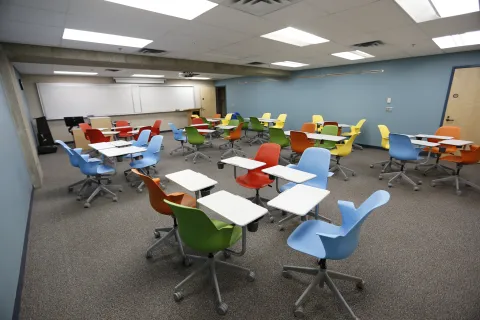Active Learning
Active Learning
Image

Active learning is a process whereby students engage in activities, such as reading, writing, discussion, or problem solving that promote analysis, synthesis, and evaluation of class content. In other words, students are not passively taking in content, but are actively engaged with it.
The Learning Enviroment Evaluation(LEE) group within the Teaching Centre has done a lot of research around active learning, including the use of SCALE-UP rooms.
